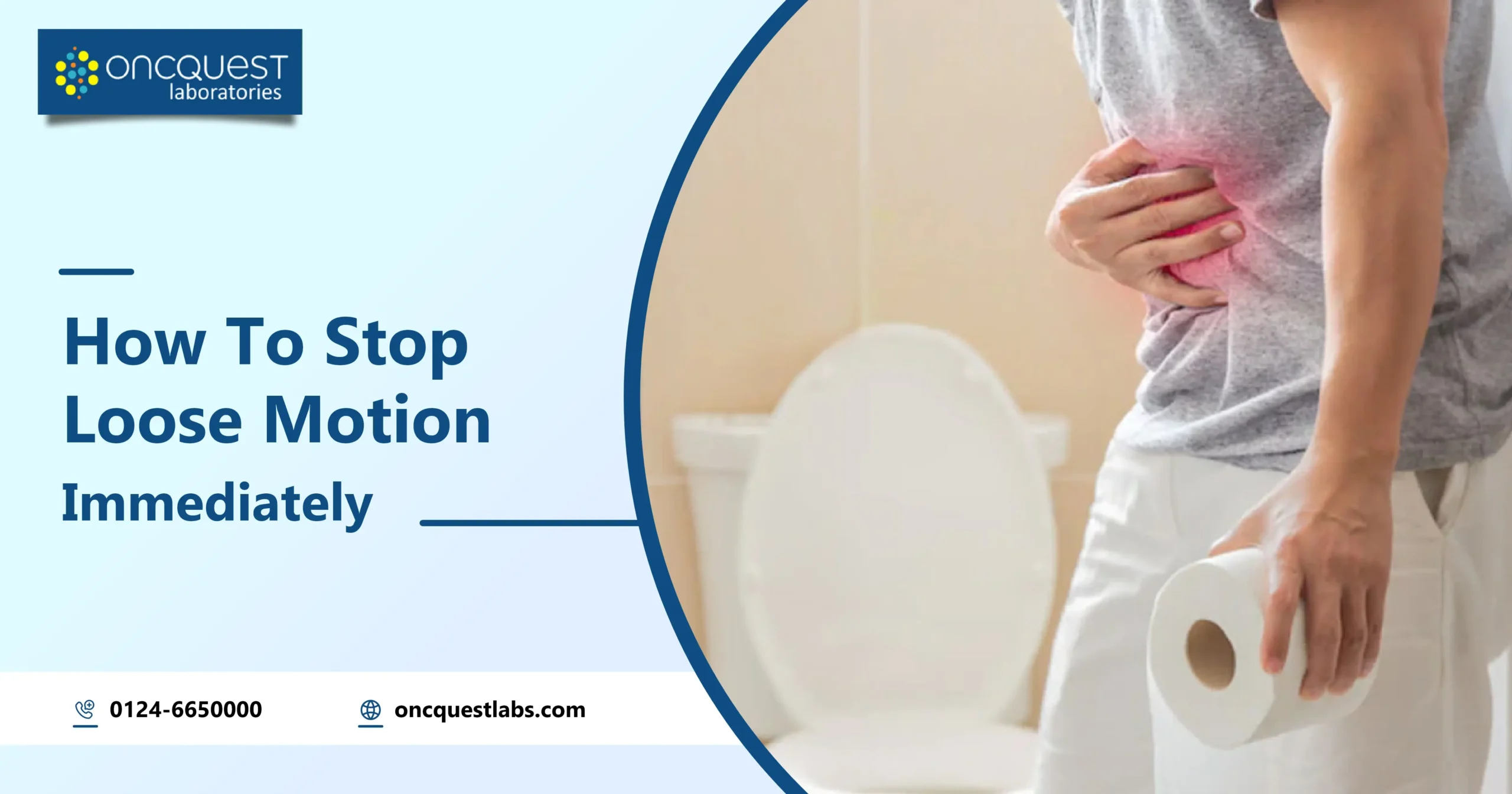Loose motion, or diarrhea, occurs when the intestines can’t absorb nutrients properly, causing undigested food to pass through the body as watery or loose stools. It’s a common issue affecting all age groups, from infants to the elderly, often caused by factors like allergies, food poisoning, infections, or stress.
Diarrhea is not an illness itself but a symptom of various possible causes. In most cases, it’s not a serious problem and can be treated at home. However, it can lead to issues like dehydration, electrolyte loss, and other symptoms.
The main reason for loose motion is the loss of good bacteria in the gut, often due to diet changes or antibiotics. Wondering how to stop loose motion? Fortunately, it’s usually short-lived, lasting a day or two, but it can become serious in severe cases. If home remedies aren’t effective, consulting a doctor is crucial for proper guidance and treatment.
Contents
Top Home Remedies for Effectively Managing Loose Motions
Here are some effective home remedies for managing loose motions:
1. Hydration: Drink plenty of fluids like water, electrolyte solutions, or coconut water to prevent dehydration caused by loose motions.
2. BRAT Diet: Stick to a diet of bananas, rice, applesauce, and toast, which can help in easy digestion and firm up stools.
3. Probiotics: Consume foods rich in probiotics like yogurt or take probiotic supplements to restore the balance of good bacteria in the gut.
4. Herbal Teas: Drink herbal teas like chamomile, peppermint, or ginger tea, known for their soothing properties on the digestive system.
5. Plain Crackers or Rice Water: Snack on plain crackers or sip on rice water, which can be gentle on the stomach and help control loose motions.
6. Avoid Certain Foods: Steer clear of spicy, greasy, or dairy-heavy foods that may worsen diarrhea.
Remember to consult with a healthcare professional if your symptoms persist or worsen.
Additional Home Remedies for Effectively Managing Loose Motions
1. Ginger Infusion: Make ginger tea by boiling fresh ginger slices; ginger is known for its anti-inflammatory properties that may help soothe the digestive system.
2. Mint Leaves: Chew on fresh mint leaves or make a mint tea; mint is believed to have a calming effect on the stomach.
3. Activated Charcoal: Activated charcoal supplements may absorb toxins and help alleviate diarrhea; use as directed and consult a healthcare professional.
4. Carrot Soup: Prepare a simple carrot soup, as carrots are easy to digest and may provide relief from loose motions.
5. Oatmeal: Plain oatmeal can be a gentle, soluble fiber that helps bulk up stools; avoid adding sugar or dairy.
6. Turmeric Milk: Mix turmeric with warm milk; turmeric is known for its anti-inflammatory and antimicrobial properties.
7. White Rice Water: Rinse white rice and drink the water; it can be beneficial in controlling loose motions.
8. Cumin Seeds: Boil cumin seeds in water and drink the strained liquid; cumin is believed to aid digestion.
9. Blueberries: Consume fresh or frozen blueberries; they contain antioxidants and fiber that may help regulate bowel movements.
10. Yogurt with Honey: Plain yogurt with a teaspoon of honey can provide probiotics and soothing effects on the stomach.
11. Coriander Water: Boil coriander seeds in water, strain, and drink the liquid; coriander is thought to have anti-inflammatory properties.
12. Arrowroot Powder: Mix arrowroot powder with water to create a soothing paste; arrowroot is known for its potential anti-diarrheal effects.
13. Tamarind Water: Soak tamarind in water and drink the strained solution; it may help with digestive issues.
14. Chamomile Infusion: Chamomile tea is known for its calming effects on the digestive system; sip on it throughout the day.
15. Papaya: Eat ripe papaya, as it contains enzymes that may aid digestion and reduce inflammation.
Always be cautious with home remedies and consult a healthcare professional, especially if symptoms persist or if you have any underlying health conditions.
Strategies for Avoiding Loose Motions
1. Practice Good Hygiene: Wash your hands thoroughly, especially before eating or preparing food, to reduce the risk of infections causing loose motions.
2. Safe Food Handling: Ensure that food is cooked thoroughly, and avoid consuming undercooked or raw foods, particularly meats and eggs.
3. Clean Water Consumption: Drink safe and clean water, either boiled or from a reliable source, to prevent waterborne infections that can lead to loose motions.
4. Be Mindful of Street Food: Exercise caution when consuming street food to minimize the risk of foodborne illnesses.
5. Probiotic-Rich Foods: Include probiotic-rich foods like yogurt in your diet regularly to promote a healthy balance of gut bacteria.
6. Moderate Fiber Intake: Maintain a balanced diet with a moderate intake of fiber, as excessive fiber can sometimes contribute to loose motions.
7. Avoid Spicy and Greasy Foods: Limit the consumption of spicy, greasy, and heavily seasoned foods, as they may irritate the digestive system.
8. Stay Hydrated: Drink an adequate amount of water throughout the day to prevent dehydration, especially during hot weather or physical activity.
9. Mindful Antibiotic Use: Take antibiotics only as prescribed by a healthcare professional, and consider probiotic supplements alongside antibiotic treatment to support gut health.
10. Stress Management: Practice stress-reducing techniques, as stress can contribute to digestive issues; activities like meditation or yoga may be helpful.
11. Travel Precautions: When traveling, be cautious about the food and water sources, and opt for bottled or boiled water.
12. Fruits and Vegetables: Wash fruits and vegetables thoroughly before consuming to remove any potential contaminants.
13. Regular Exercise: Engage in regular physical activity to promote overall well-being, including digestive health.
14. Limit Alcohol and Caffeine: Excessive alcohol and caffeine intake can contribute to digestive issues; consume them in moderation.
15. Listen to Your Body: Pay attention to your body’s signals and avoid foods that you know may trigger digestive discomfort.
Remember, if you experience persistent or severe digestive issues, it’s essential to consult with a healthcare professional for a proper diagnosis and guidance.
Conclusion
In conclusion, preventing loose motions involves practicing good hygiene, safe food handling, and maintaining a balanced diet. Probiotic-rich foods, moderate fiber intake, and mindful antibiotic use contribute to a healthy digestive system. Stress management, cautious travel habits, and staying hydrated are additional key factors. Remember to listen to your body, exercise regularly, and seek medical advice if persistent digestive issues arise. By incorporating these tips into your lifestyle, you can reduce the risk of experiencing loose motions and promote overall digestive health.





